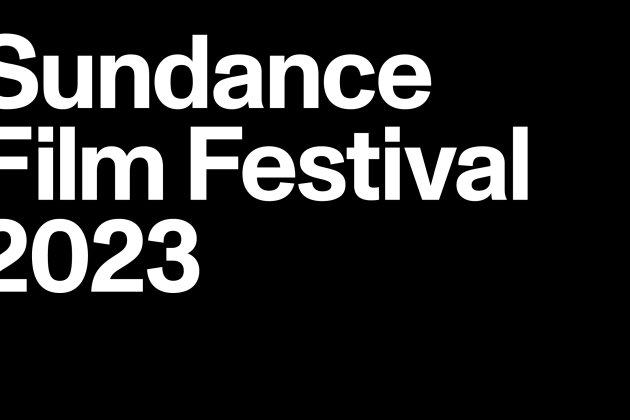Searching (In Vain) For A ‘Citizenfour’ At Sundance
- Oops!Something went wrong.Please try again later.
- Oops!Something went wrong.Please try again later.
- Oops!Something went wrong.Please try again later.
- Oops!Something went wrong.Please try again later.

Can you remember the last time a documentary actually took your breath away?
I can. It happened on the evening of Tuesday, Oct. 14, 2014, in a theater at the Los Angeles County Museum of Art. The film was Citizenfour, which documented the encounters between National Security Agency whistleblower Edward Snowden and the filmmaker/journalists Laura Poitras, Glenn Greenwald and Ewen MacAskill.
More from Deadline
My datebook for the day simply said “Poitras”—she was on hand to introduce the picture, of which I had no particular expectations. Documentaries come, and documentaries go by the hundred, after all. This one, I thought, was just one more in a crowded season.
But within minutes I knew I was wrong, stunningly so. In a shocking act of cinematic transgression, Poitras and her colleagues had risked the rage of multiple governments to record evidence of vast surveillance overreach by virtually unfettered intelligence agencies. They had filmed Snowden in real time, as he prepared for his flight to Russia. The resulting movie, most remarkably of all, raised deep questions about the administration of a popular president, Barack Obama, yet was backed by some of Obama’s strongest Hollywood supporters, including Harvey Weinstein, Jeff Skoll and Richard Plepler.
It was an amazing feat, worthy of the Best Feature Documentary Oscar it won the next year.
Since then, other documentaries have made an impression. I’ve been charmed by Linda Ronstadt: The Sound Of My Voice, moved by Three Identical Strangers, and agitated to no end by Going Clear: Scientology And The Prison Of Belief.
But I’m still waiting for another film that risks so much in pursuit of so consequential a truth as Citizenfour. And to judge by the next line-up at the Sundance Film Festival–a January birthing ground for documentaries that will populate indie/mainstream screens (quite apart from an expanding, mostly online, right/libertarian film circuit) for the rest of the year–the wait is going to go on for a while.
Not that the Sundance schedule is uninteresting. Who wouldn’t be intrigued by Going Varsity In Mariachi, about South Texas high school mariachi competitions, or Nam June Palk: Moon Is The Oldest TV, about an artist who, according to Sundance, “prophesied both the fascist tendencies and intercultural understanding that would arise from the interconnected metaverse of today’s world”?
After all, it’s hard to argue with the metaverse, or a hot hand on the guitarrón.
But almost entirely missing from the many documentaries listed in last month’s 99-film announcement of Sundance features is any attempt to confront a growing sense that government—even in ostensibly free nations like the United States of America—is still, and again, overstepping its bounds while abandoning fundamental duties. Nothing here about the FBI and its pressures on social media, nor about the suppression of inconvenient truth (whether touching on Covid vaccines or Hunter Biden’s lap-top), nor about federal meddling in the interface between school boards and angry parents. For that matter, homeless camps, street crime, permissive prosecutors, porous borders, grocery prices and election security or disenfranchisement (depending on how you view it), all at issue in the national debate, are either absent, or hidden from the casual reader of festival synopses
Granted, abortion gets its moment. PLAN C, a documentary, follows a grassroots campaign to expand access to abortion pills after the fall of Roe v. Wade. Censorship is dealt with, but on a small scale, in Bad Press: It’s about a free speech crack-down by the Muskogee Nation. New York’s transgender sex workers appear in The Stroll. Tyranny takes a licking when it’s far away, as in 20 Days In Mariupol, about Ukrainian journalists under Russian siege, or 5 Seasons Of Revolution, rooted in Syria.
In all, the Sundance documentarians seem to be nesting in festival orthodoxy while the world churns outside. An overriding concern in Park City is identity. The festival announcement notes that 27 percent of its feature submissions were directed by people who identify as women this year, but fully 53 percent of the selected features were woman-directed, with another 5 percent from nonbinary individuals.
For the record, Laura Poitras’ current film, All The Beauty And the Bloodshed, about the opioid crisis, is already in release and is on the current Oscar documentary shortlist. Other films on the shortlist tackle an array of characters and issues, including David Bowie in Moonage Daydream, abortion in The Janes, and Asian-American struggles in “Trump’s rural America” in Bad Axe. But they seem unconcerned with those Big Brother questions that are making cult figures of Elon Musk and George Orwell at the moment.
Looking forward, there’s certainly nothing at Sundance to provoke a call from the FBI content cops who have been haunting Twitter. There is no Citizenfour—none that I can see, at any rate, and I do hope I’m wrong.
Best of Deadline
TV Cancellations Photo Gallery: Series Ending In 2023 & Beyond
Hollywood & Media Deaths In 2023: Photo Gallery & Obituaries
15 Films You Need To See That Flew Under The Radar In 2022 - Photo Gallery
Sign up for Deadline's Newsletter. For the latest news, follow us on Facebook, Twitter, and Instagram.

